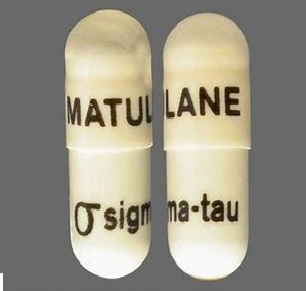Procarbazine Interactions
There are 559 drugs known to interact with procarbazine, along with 5 disease interactions, and 1 alcohol/food interaction. Of the total drug interactions, 179 are major, 363 are moderate, and 17 are minor.
- View all 559 medications that may interact with procarbazine
- View procarbazine alcohol/food interactions (1)
- View procarbazine disease interactions (5)
Most frequently checked interactions
View interaction reports for procarbazine and the medicines listed below.
- Acetylsalicylic Acid (aspirin)
- Adrenalin (epinephrine)
- Adriamycin (doxorubicin)
- Adzenys XR-ODT (amphetamine)
- Amoxil (amoxicillin)
- Andexxa (coagulation factor Xa)
- Anti-D (RHO) Immunoglobulin (rho (d) immune globulin)
- AquADEKs (multivitamin with minerals)
- Arixtra 5 mg/dose (fondaparinux)
- Asacol (mesalamine)
- Atacand (candesartan)
- Azithromycin Dose Pack (azithromycin)
- Bactrim (sulfamethoxazole / trimethoprim)
- CellCept (mycophenolate mofetil)
- Ceprotin (protein c)
- Cernevit (multivitamin)
- Childrens Chewable Multivitamins (multivitamin)
- Cipro (ciprofloxacin)
- Citrucel (methylcellulose)
- Clinolipid (fat emulsion)
- Compazine (prochlorperazine)
- Cotempla XR-ODT (methylphenidate)
- Coumadin (warfarin)
- Creon (pancrelipase)
- IBU (ibuprofen)
- Keppra (levetiracetam)
- Lugol's (iodine / potassium iodide)
- Namenda (memantine)
- Paracetamol (acetaminophen)
- Vitamin D3 (cholecalciferol)
Procarbazine alcohol/food interactions
There is 1 alcohol/food interaction with procarbazine.
Procarbazine disease interactions
There are 5 disease interactions with procarbazine which include:
More about procarbazine
- procarbazine consumer information
- Compare alternatives
- Side effects
- Dosage information
- During pregnancy
- Drug class: miscellaneous antineoplastics
- En español
Related treatment guides
Drug Interaction Classification
| Highly clinically significant. Avoid combinations; the risk of the interaction outweighs the benefit. | |
| Moderately clinically significant. Usually avoid combinations; use it only under special circumstances. | |
| Minimally clinically significant. Minimize risk; assess risk and consider an alternative drug, take steps to circumvent the interaction risk and/or institute a monitoring plan. | |
| No interaction information available. |
See also:
Further information
Always consult your healthcare provider to ensure the information displayed on this page applies to your personal circumstances.


